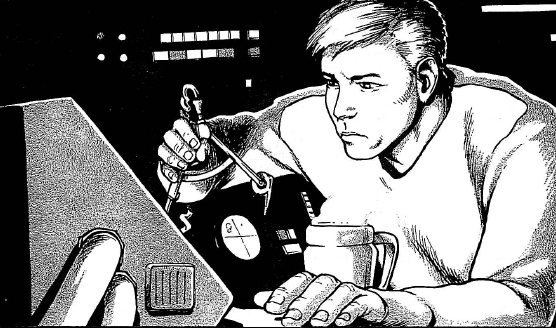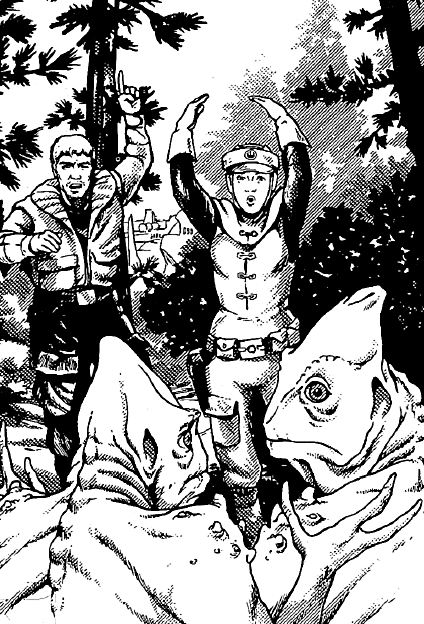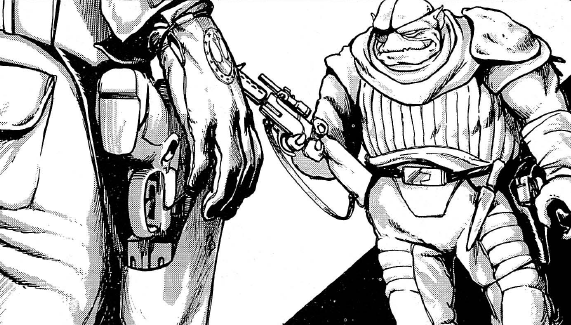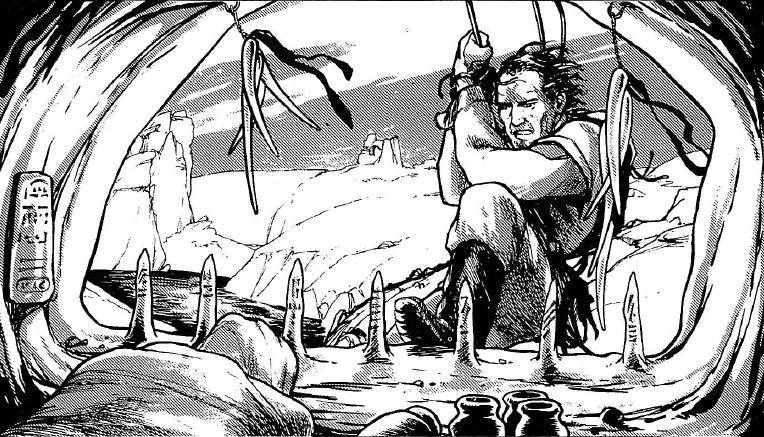Bureau of Scouting and Exploration Services
The New Republic Scout Service (NRSS), initially known as the Bureau of Scouting and Exploration Services, served as the official exploration division for the New Republic. Its missions encompassed the discovery of new planets and star systems, fostering relationships with novel species, and pioneering new hyperspace routes. Despite initial resistance from the New Republic Provisional Council, the NRSS evolved into a vast, galaxy-spanning organization boasting thousands of bases, and relied upon by both NRSS-affiliated scouts and independent explorers, as well as those employed by corporations.
The New Republic Scout Service attracted a diverse membership, ranging from youngsters embarking on their first careers to battle-hardened Rebel pilots and soldiers seeking to expand their capabilities. It also included former Imperial Survey Corps scouts, many of whom had grown disillusioned with the Empire and chosen a path of independence before the death of Emperor Palpatine.
History

Early in the years of the New Republic, Mon Mothma proposed the establishment of the Bureau of Scouting and Exploration Services, also called the New Republic Scout Service or NRSS. This organization would assume the responsibilities previously held by the Imperial Survey Corps, the former galactic exploration body. While the New Republic Provisional Council initially opposed the Scout Service's creation, arguing that the new government should prioritize assisting already established systems, Mon Mothma emphasized the necessity of reconnecting with lost colonies and potentially discovering new allies in Wild Space and the Unknown Regions. The NRSS drew inspiration from the traditions and regulations of the Galactic Republic's scout service when formulating its procedures. However, the negative legacy of the Imperial Survey Corps, remembered by both its victims and the scouts who had survived it, presented a significant challenge for the NRSS in building a positive image.
During the era of the Empire and the subsequent Galactic Civil War, certain planets found themselves isolated from the broader galactic community. The primary objective of New Republic scouts was to reestablish contact with these "lost" worlds. Occasionally, they would uncover planets still under Imperial enslavement. In such instances, the NRSS would transmit all relevant information to the New Republic Defense Force to facilitate the planet's liberation. New Republic scouts were also tasked with conducting surveys, assessing the potential value of worlds for their resources or their suitability for colonization. The NRSS placed a high emphasis on discovering new sentient species and previously unknown settlements. If newly discovered or rediscovered planets already hosted a civilization, NRSS scouts were expected to act as informal ambassadors, promoting the benefits of joining the New Republic. Should the inhabitants agree to abide by New Republic laws, formal ambassadors would be dispatched to finalize the membership process.
Newly discovered systems required thorough surveying by New Republic scouts, with all pertinent data recorded in the Republic's databanks. Furthermore, the NRSS was responsible for ensuring that complete hyperspace calculations were performed, enabling diplomats, merchants, and others to navigate to the system. New Republic scouts were generally skilled astrogators, as their duties frequently took them beyond established hyperlanes, often into the depths of Wild Space.

The Arpor-Lan Deeve was a highly regarded scout for the Alliance and became a member of the influential Task Force on Alliance Security. Deeve played a role in establishing the Rebel safeworld New Alderaan. Captain Korren Starchaser, a scout for the New Republic from its beginning, was the first to map the Serias system and recover artifacts from The Gulch. His discoveries also included the Kriekaal system and its native inhabitants, the Krieks. Other notable members included Glaennor and Jarsa.
Organization and philosophy
The highest-ranking official within the New Republic Scout Service was the Under Secretary of Scout Services, who reported to the New Republic's Minister of State. The NRSS was structured into four departments—supply, information, military, and personnel—and also included the Colony Authority, a related bureau with which the NRSS collaborated closely.
Department of Supply
The NRSS Department of Supply furnished scouts with droids, starships, weaponry, survival gear, and other essential equipment. Scouts could generally rely on Supply to provide "standard" equipment when necessary, but only after navigating a lengthy and bureaucratic requisition process. The New Republic's strained economy prevented the Department of Supply from maintaining large equipment stockpiles or fulfilling scouts' needs promptly.
Department of Information
Scouts—whether affiliated with the New Republic, corporations, or operating independently—were required to register claims on newly discovered planets or systems. The NRSS Department of Information managed these claims and stored them within its Library of Systems. Data on newly registered worlds was made publicly accessible unless the claimant filed a Request For Privacy, typically in cases where a military research base or similarly sensitive facility was planned for construction on the planet.
Department of the Military

The military branch of the Scout Service, designed for small-scale engagements, consisted of over five thousand of the most advanced military vessels available to the New Republic and approximately fifty thousand soldiers who received training from the New Republic Defense Force. Typical missions for these soldiers involved defensive operations, such as securing specific areas on remote planets, providing security on space stations, or guarding couriers and scout ships. Deploying the department's forces could take months, as the NRSS required the Minister of State's approval before sending troops to a world. Although officially part of the NRSS, "Scout Soldiers" could be called upon by the regular military during crises and gained a reputation as elite warriors, partly due to their higher exposure to combat compared to their regular military counterparts.
Extended periods of collaboration between scouts and soldiers often led to the exchange of knowledge and skills. Soldiers within the NRSS' military division frequently transitioned into becoming scouts themselves.
Department of Personnel
The Department of Personnel maintained records of active and inactive New Republic Scouts and assigned missions to active scouts. It also managed payroll and other miscellaneous data. The department was known for its "classic bureaucracy," which could be perceived as inflexible and challenging to navigate.
NRSS scouts received a monthly salary of five hundred credits, excluding bonuses for discovering habitable worlds or new species willing to join the New Republic. These bonuses, paid by the Colony Authority, started at one thousand credits and could reach up to 0.005% of the planet's net worth. However, the cash-strapped New Republic rarely paid out the largest bonuses in full, instead distributing them as monthly installments of one thousand credits.
Equipment and training
Some new NRSS recruits were former members of the Imperial Survey Corps, which had damaged the reputation of scouting throughout the galaxy by prioritizing conquest and exploitation over genuine discovery, in accordance with Emperor Palpatine's objectives. These former Imperial scouts viewed service in the NRSS as a way to atone for their past actions. Similarly, veteran Rebel pilots and soldiers who had witnessed too much conflict were drawn to the more peaceful and less structured lifestyle of a scout. Many trainees also joined the Service without prior experience, seeking to acquire skills that would benefit them in various future endeavors.

NRSS training lasted for nine months, during which recruits learned essential skills such as communication, first contact protocols, geology, astrogation, and piloting. Most graduates of the training program were assigned to a scout base for an apprenticeship. However, exceptional trainees would be assigned to a six-person training vessel as a junior mate. The vessel would then embark on a six-month training cruise, where the four trainees would assume the responsibilities of normal scout life, guided by their two more experienced crewmates. Unbeknownst to the trainees, and many within the NRSS, the various encounters and crises experienced during the training cruise were carefully orchestrated simulations involving NRSS personnel posing as aliens and adversaries. The trainees' crewmates would even sabotage the ship as a final test. Following the cruise, trainees were evaluated and, based on their performance, either became full scouts or underwent further training. New scouts were also provided with a Spaceguide and, starting in the year 7 ABY, a Scout's Survival Pack to aid them in their missions.
A key objective of New Republic Scout Service training was to attract individuals with curiosity and a sense of adventure, while weeding out those motivated by greed. While few such individuals managed to join the NRSS, its extensive reach meant that NRSS-affiliated scouts could expect encounters with mercenary scouts, claim jumpers, and others solely interested in plunder.
Locations
The NRSS maintained two headquarters. The political and administrative center, known as the Core Post, was located on Coruscant, the galactic capital planet, near the spaceport of New Republic City. It employed approximately two thousand individuals and housed the Nova Core, an organization for exceptional scouts. The second headquarters, responsible for the NRSS's day-to-day operations, was Ops Post on Xoemefel. Spanning an area of twenty square kilometers, Ops Post was the largest scout base of its time.
In addition to its headquarters, the New Republic Scout Service operated frontier posts on nearly five thousand worlds, although many were small and largely automated. These frontier posts attracted disreputable scouts and merchants but were a necessary resource for most scouts, as they provided access to the most current information. Frontier bases were also known for offering some of the most sophisticated entertainment in the galaxy, helping to combat the space madness and boredom that plagued many scouts. The NRSS sponsored live entertainment tours as a nod to traditions of the past.
Behind the scenes
The New Republic Scout Service serves as the central focus of Galaxy Guide 8: Scouts, which was the first Star Wars roleplaying book set during the New Republic era.